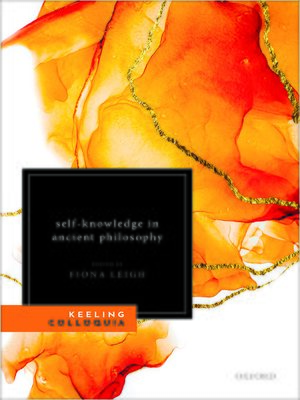Self-Knowledge in Ancient Philosophy
ebook ∣ The Eighth Keeling Colloquium in Ancient Philosophy
By Fiona Leigh

Sign up to save your library
With an OverDrive account, you can save your favorite libraries for at-a-glance information about availability. Find out more about OverDrive accounts.
Find this title in Libby, the library reading app by OverDrive.



Search for a digital library with this title
Title found at these libraries:
| Library Name | Distance |
|---|---|
| Loading... |
Self-knowledge - a person's knowledge of their own thoughts, character, and psychological states - has long been a central focus of philosophical enquiry. The concerns which occupy ancient thinkers with regard to self-knowledge, however, diverge in critical ways from contemporary investigations on the topic. In this volume, based upon the eighth Keeling Colloquium in Ancient Philosophy, leading scholars explore the treatment of self-knowledge in ancient Greek thought, particularly in Plato, Aristotle, Hellenistic thinkers, and Plotinus. A number of chapters identify specific modes of self-knowledge in ancient thought, such as knowledge of one's individual moral or political character in Plato, or one's own discursive thought as compared to that arising from the self-presence of intellect in Plotinus. Others identify interesting points of convergence with contemporary thinking to make interventions in existing debates as well as to articulate new research questions, such as whether Plato regarded self-knowledge as synoptic and diachronic in the Republic, or whether self-knowledge is a condition on virtue for Aristotle. By exploring the distinctions between the fundamental assumptions and conceptual frameworks in which ancient and modern philosophers examine self-knowledge, this volume makes a novel contribution to current scholarship in the field.







